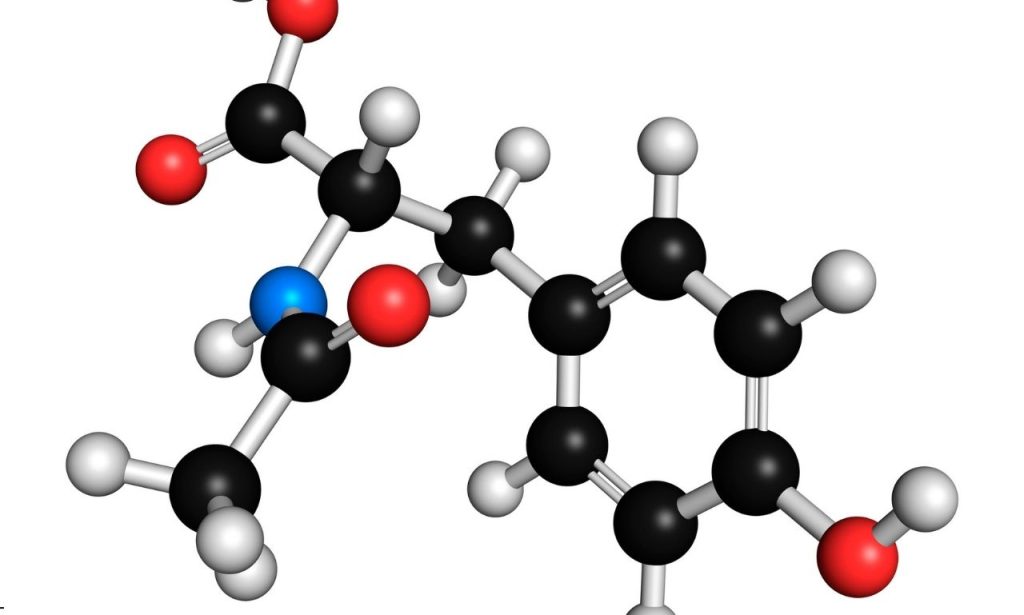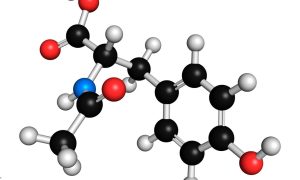N-Acetyl Cysteine, often referred to as NAC, is a compound with a long history in both medicine and wellness circles. It’s a derivative of the amino acid cysteine, and it has been studied extensively for its ability to support health in multiple ways. Doctors have prescribed it for decades in hospitals to treat acetaminophen overdoses, but in recent years, NAC has gained wider recognition as a supplement.
What makes NAC stand out is its connection to glutathione. This molecule is one of the body’s strongest antioxidants and is often referred to as the “master antioxidant.” NAC provides the building blocks to make glutathione, which helps protect cells from damage and supports detoxification. However, its influence doesn’t stop there. NAC has been shown to affect mental health, fertility, blood sugar regulation, and even heart and immune system function.
Let’s walk through the top nine benefits of NAC, with enough detail to help you understand why this compound is gaining so much attention.
Essential for Making the Powerful Antioxidant Glutathione

Every day, your body encounters oxidative stress. This comes from environmental toxins, poor diet, stress, and even normal metabolism. To defend against this, your cells use antioxidants. Among them, glutathione is the most important.
Glutathione neutralizes harmful free radicals before they damage DNA, proteins, and lipids. Without enough glutathione, your body becomes more vulnerable to chronic conditions such as cardiovascular disease, neurodegenerative disorders, and premature aging.
Here’s where NAC plays a key role. Glutathione is made of three amino acids: glutamine, glycine, and cysteine. Cysteine is the limiting factor, meaning the body can only make as much glutathione as the cysteine supply allows. NAC is a form of cysteine that is more stable and easier for the body to use. Supplementing with NAC ensures your body has the raw material it needs to produce glutathione consistently.
Think of glutathione as your internal cleanup crew. NAC is like supplying that crew with the right tools. Without it, the cleanup slows down. With it, your system works smoothly, protecting you from the wear and tear of daily living.
May Improve Mental Health Conditions and Substance Use Disorder
Mental health issues often involve imbalances in brain chemistry. NAC has been researched for its potential to improve conditions such as depression, bipolar disorder, and obsessive-compulsive disorder.
A big reason for this lies in its effect on glutamate. Glutamate is one of the most abundant neurotransmitters in the brain. It’s essential for learning and memory, but when levels are too high, it can overstimulate neurons and cause damage. NAC helps regulate glutamate levels, preventing the toxic effects of excess while still supporting normal brain function.
Clinical trials have also looked at NAC for substance use disorders, including addiction to cocaine, cannabis, and nicotine. Many of these studies suggest NAC may reduce cravings and withdrawal symptoms. The proposed mechanism is the same—regulating glutamate and restoring balance in brain pathways linked to reward and compulsion.
While NAC is not a replacement for therapy or medication, it offers an additional layer of support. This makes it a promising tool in addressing mental health struggles, particularly in individuals who haven’t responded well to conventional treatments.
Boosts Brain Health by Regulating Glutamate and Replenishing Glutathione
Beyond mental health, NAC supports general brain health. The brain is uniquely vulnerable to oxidative stress because it consumes a large amount of oxygen compared to its size. That oxygen demand creates a high volume of free radicals, which, if left unchecked, can damage neurons.
NAC’s ability to replenish glutathione helps shield the brain from oxidative harm. By neutralizing free radicals, NAC prevents long-term damage to brain cells. This is especially relevant when considering neurodegenerative diseases like Alzheimer’s and Parkinson’s, where oxidative stress plays a central role.
NAC also influences brain signaling by regulating glutamate. Keeping glutamate in balance reduces the risk of excitotoxicity, a process where overstimulation damages neurons. Researchers are exploring whether NAC can delay or lessen age-related cognitive decline. While the findings are early, they highlight the broad protective role this compound may play in brain longevity.
May Improve Fertility in Both Men and Women
Infertility is often linked to oxidative stress, which damages sperm and egg cells. Because these cells are highly sensitive, even minor damage can lower the chances of conception. NAC’s antioxidant properties directly address this issue.
For men, NAC supplementation has been shown to improve sperm quality. It increases motility, count, and overall viability. By reducing DNA damage in sperm cells, it enhances the likelihood of successful fertilization.
For women, NAC is particularly promising in cases of polycystic ovary syndrome (PCOS). PCOS is a leading cause of infertility and is associated with hormone imbalances, irregular ovulation, and insulin resistance. Studies indicate that NAC may restore ovulation and improve insulin sensitivity in women with PCOS. These changes can significantly boost fertility outcomes.
Though more research is needed, NAC provides a safe, natural option for couples facing fertility challenges, particularly when oxidative stress or metabolic issues are involved.
May Stabilize Blood Sugar by Decreasing Inflammation in Fat Cells
Metabolic health is closely tied to inflammation. When fat tissue becomes inflamed, it disrupts the body’s ability to use insulin effectively. This condition, known as insulin resistance, is a precursor to type 2 diabetes.
NAC helps by lowering oxidative stress and inflammation within fat cells. By doing so, it improves insulin sensitivity, meaning that glucose can enter cells more efficiently. This reduces blood sugar levels and supports metabolic stability.
Animal studies show that NAC can protect against insulin resistance and complications from high blood sugar. Human trials are more limited but suggest similar potential. While NAC is not a standalone treatment, it may serve as a complementary tool alongside lifestyle changes such as diet, exercise, and weight management.
For people struggling with unstable blood sugar, NAC represents an additional layer of defense, one that directly targets the inflammatory processes at the root of the problem.
May Reduce Heart Disease Risk by Preventing Oxidative Damage
Heart disease is one of the most pressing health concerns worldwide. Oxidative stress, inflammation, and cholesterol imbalances all contribute to cardiovascular problems. NAC’s antioxidant capacity makes it useful for reducing these risks.
One major benefit is its ability to reduce oxidation of LDL cholesterol. Oxidized LDL is a primary driver of plaque buildup in arteries. By preventing this oxidation, NAC helps keep arteries clearer and lowers the risk of atherosclerosis.
NAC may also improve circulation by boosting nitric oxide production. Nitric oxide relaxes blood vessels, promoting better blood flow and reducing blood pressure. Together, these effects create a healthier cardiovascular environment.
While NAC cannot replace medications like statins or blood pressure drugs, it provides meaningful support for long-term heart health. For individuals at risk, it offers an additional safeguard.
Ability to Boost Glutathione Levels May Improve Immune Function
Your immune system is constantly working to defend against bacteria, viruses, and other invaders. A strong immune response depends on balance—too little activity leaves you defenseless, while too much can lead to autoimmunity.
Glutathione is central to maintaining this balance. It regulates immune cell activity and ensures responses are appropriate. NAC boosts glutathione levels, which strengthens overall immune function.
One of NAC’s well-known uses is in respiratory conditions. It helps thin mucus, making it easier to clear from the lungs. This, combined with its antioxidant properties, makes it valuable in conditions such as chronic bronchitis or chronic obstructive pulmonary disease (COPD). By reducing oxidative stress and inflammation, NAC supports both local lung function and systemic immunity.
For everyday health, having stronger immune defenses means fewer infections and faster recovery. In times of stress or illness, NAC can provide the body with the resources it needs to stay resilient.
Conclusion
N-Acetyl Cysteine is far more than just a supplement; it’s a versatile compound with wide-reaching health effects. By replenishing glutathione, regulating neurotransmitters, and reducing oxidative stress, NAC supports systems throughout the body.
Its benefits extend to mental health, fertility, metabolic function, cardiovascular protection, and immune strength. While NAC is not a cure for any single condition, it enhances resilience and promotes balance.
If you’re considering adding NAC to your routine, consult with a healthcare professional. Supplementation should always be tailored to individual needs and health conditions. With proper use, NAC stands as a powerful ally for long-term health.
Also Read: How to Open Detoxification Pathways
FAQs
NAC is commonly used to boost glutathione, support detoxification, improve fertility, and aid in respiratory conditions.
Most people tolerate NAC well, but dosages should be guided by medical advice to avoid side effects.
Yes. Research suggests NAC can help regulate neurotransmitters and may support people with depression, OCD, or addiction.
Studies show NAC may improve sperm quality and help women with PCOS restore regular ovulation.




